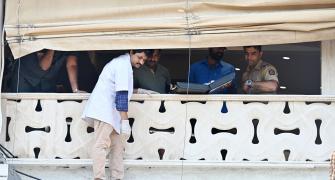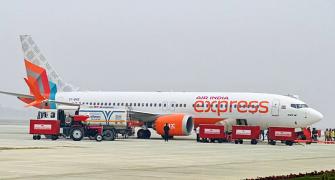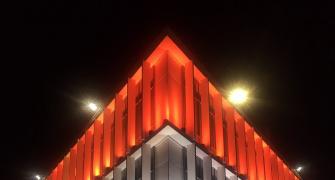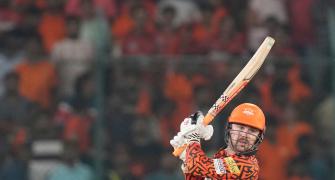The World Bank has lauded India for the 'remarkable progress' it made in alleviating poverty as well as educating children through the Universal Elementary Education programme.
In a progress report under the Education for All - Fast Track Initiative (EFA-FTI) and poverty alleviation, on the Millennium Development Goals, it said the incidence of poverty declined from 45 per cent in the 1980s to 36 per cent in the 1990s and to 26 per cent in the early 2000s.
"Between 1992-93 and 1998-99, net enrolment of 6 to 10 year-olds increased from 68 to 82 per cent. Much of this expansion was attributable to improved access, especially for girls and rural children. The number of out-of-school 6-to-14-year-olds declined from 39 million in 1999 to 25 million in 2003," the World Bank said.
The Government of India, it said, is deeply committed to universalising access to elementary education of satisfactory quality by 2010.
To provide a comprehensive policy and budgetary framework for achieving these goals, the government has launched the 'Sarva Shiksha Abhiyan,' the National Programme for Universal Elementary Education. It also introduced a Constitutional Amendment to make elementary education a fundamental right of every child.
The goal of the programme is consistent with the Millennium Development Goal for education and goes beyond it, covering eight years of elementary education in a tighter timeframe, it said.
In the past two years, the Government of India spent $450 million of its own resources to finance the programme, the World Bank said.
The World Bank, the Department of International Development and the European Community were invited by the government to provide assistance.
The indicative programme cost for 2003-04 to 2007-08 totals USD 3.5 billion, of which the government finances $1.579 billion (45 per cent), the local governments $875 million (25 per cent), the International Development Association $500 million (14.3 per cent). There are also other donors.
The speed at which all partners have responded, said the World Bank, is noteworthy -- from project conception to completion of negotiations in nine months.
However, despite this 'remarkable progress,' it pointed out, "about 13 per cent of the 6-to-14-year-old age group is still out of school."






